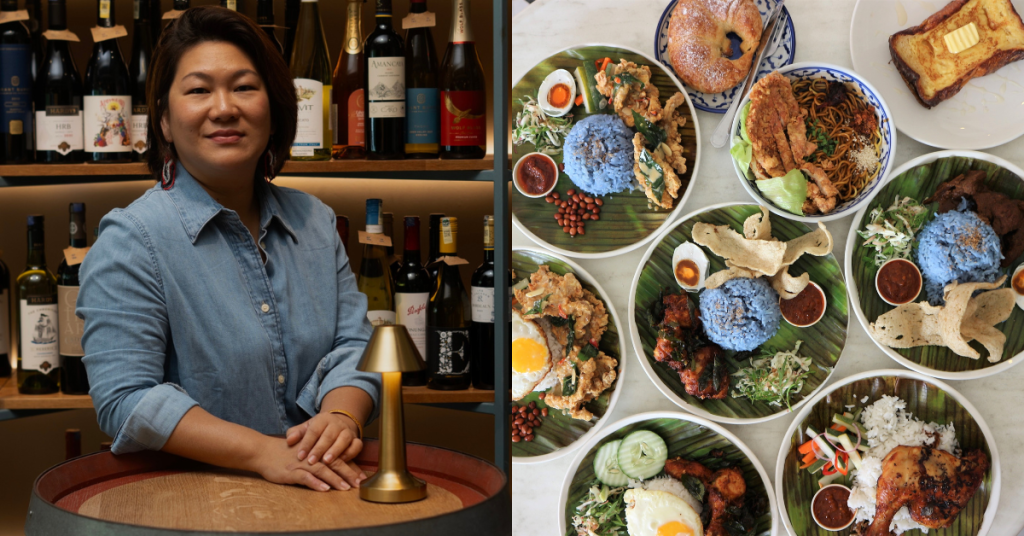Food is more than just physical nourishment. Beyond being a necessity, it’s a tangible form of culture and history.
This is something that Linn Yong believes in passionately. Born in KL, she grew up in JB and commuted to and from Singapore daily from 9 to 20 years old.
During her studies, Linn worked in the F&B industry, taking on roles from banquet waiter to Starbucks barista to cover the high living cost as a Malaysian studying in Singapore.
It was when she got to travel and try new cuisines that she began thinking about food on a deeper level, intrigued by the history behind certain foods and cuisines.
Why is Thai food Thai food? What are the subtle nuances between northern and southern Indian food, and how did those differences come about? How on earth did Chicken Tikka Masala become England’s national dish?
“In industrial design methodology there’s a saying—form follows function,” Linn pointed out. “It explains that things are designed the way they are to solve a problem.”
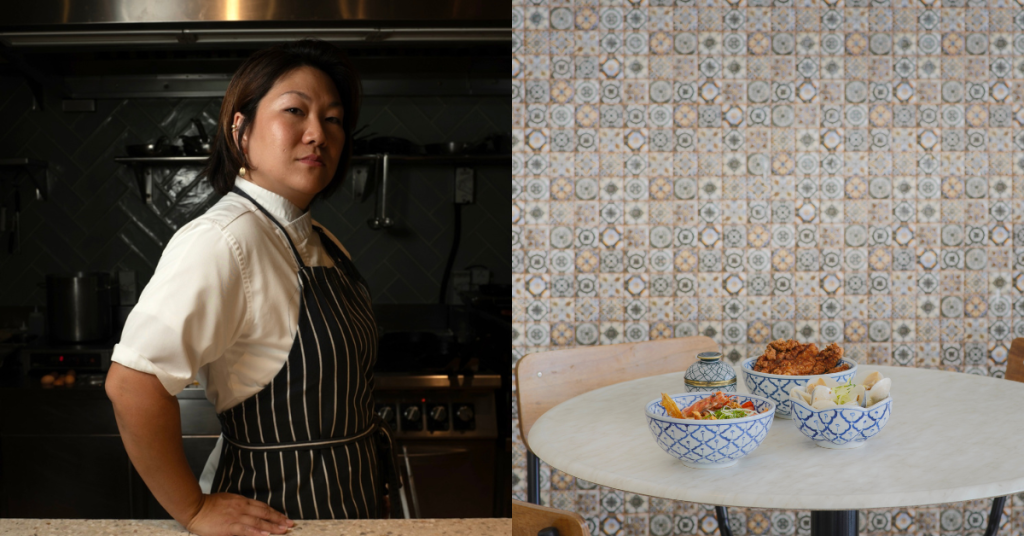
By diving into each cuisine’s origins, she began to see how food does the same thing. It exists to do more than satiate. “Or god-forbid, for a fleeting snapshot on social media,” she said.
Linn determined, “It’s an expression of our culture, heritage and identity. Nowadays a dining experience in a reputable restaurant run by celebrity chefs can even stand as bragging rights or go as far as being a gluttonous weapon of choice acting as a political soft power tool.”
This understanding and principle are apparent in her restaurants, one of which is San Da Gen Kopitiam.
Journeying into Sandakan’s F&B scene
As you may have picked up on, Linn actually has a background in Industrial Design, having worked in an MNC furniture company as a designer and merchandiser in Singapore for a few years.
In 2008, she moved to Sandakan, where her husband Anton Ngui is from, to manage the old family heritage hotel. Called Nak Hotel, its heyday had been defined by patronage from lucrative timber tycoons and foreign delegates of colonial times.
By 2016, they had revived the hotel to its former glory, offering it up as an affordable budget hotel with a stylish oriental twist. Their own Balin Rooftop Bar was also doing well.
However, the ground floor space had been vacant ever since the previous tenant ended their contract.
“We just couldn’t find any suitable takers because at that point, Sandakan town was on a steady population and economic decline as people moved upwards to spanking new townships by big developers,” she explained.
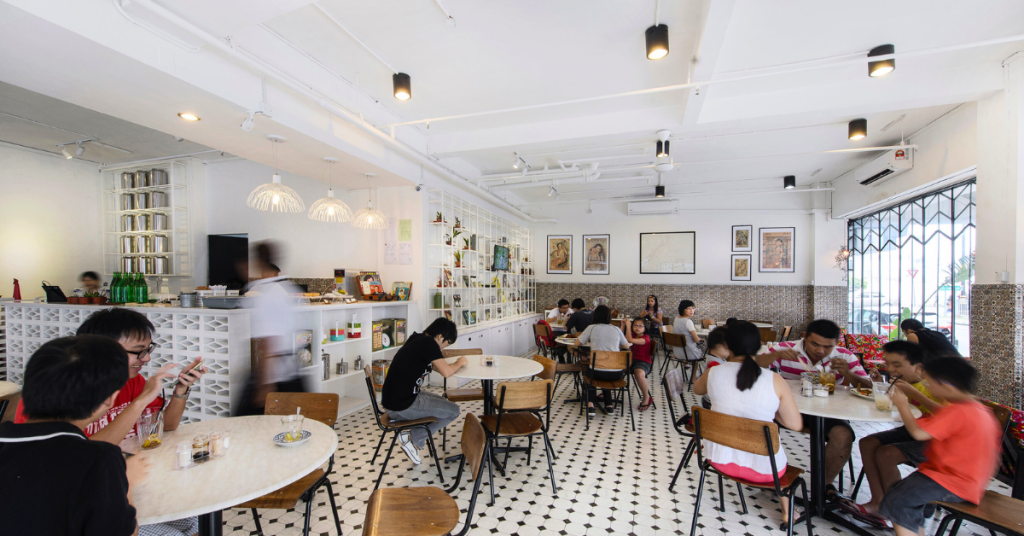
The population was aging too, as young people who left to further their studies generally did not wish to return.
That’s why she wanted to create a brand where they could bring in a breath of fresh air to the town, attracting young people and visitors alike while keeping it relevant and comfortable for the original demographic of old kopitiams.
“We also wanted to encourage other businesses to explore the untapped potential of the unique old world charm Sandakan could offer,” Linn shared.
With the blessing of her late father-in-law David Ngui and the rest of the family board, Linn, her husband, and their friend Teo Chee Kim decided to plough ahead with San Da Gen.
Three big spoons
San Da Gen translates to three big spoons or mouthfuls, anglicised to sound like Sandakan in Hakka, the most commonly spoken dialect in the area.
The eatery serves up classic Malaysian breakfast dishes like nasi lemak and kaya toast, as well as innovative homages to nostalgic flavours like dried shrimp sambal tossed noodles, paired with a chicken chop coated with Hup Seng Cream Crackers.
Pastries are also a strong suit of theirs. In fact, San Da Gen is a proud purveyor of UFO or Cow Pad Tarts that originated in the 60s to 70s in Sandakan.
“I wouldn’t be exaggerating to say that 10 years ago, you could only order UFO tart from one or two very, very old bakeries, even though it’s a pastry item that was unique to Sandakan,” Linn said.
But thanks to San Da Gen Kopitiam, everyone from home bakers to coffee shops in KL now make and sell them.
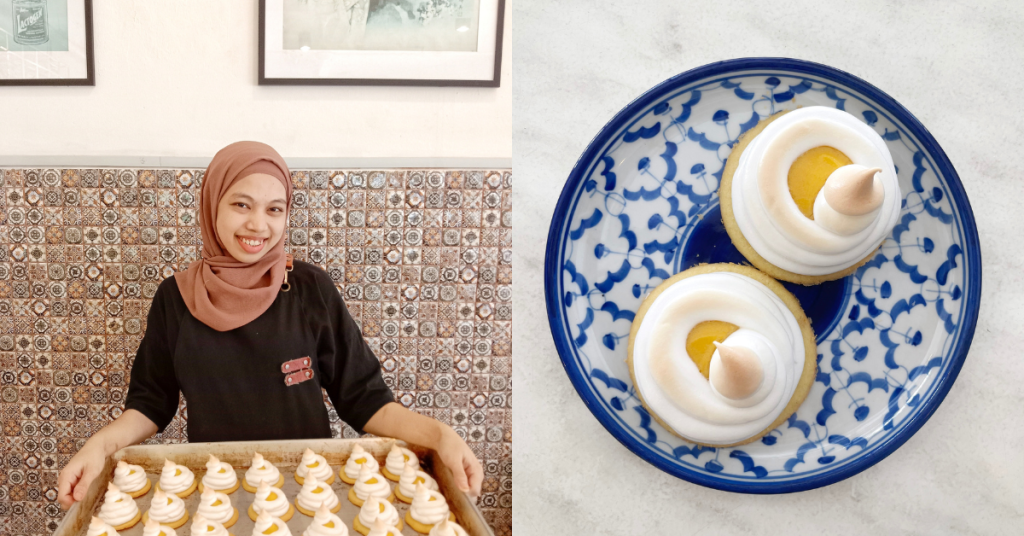
“We can’t say we single handedly revived the nostalgic pastry, but I certainly believe we have contributed to its rise in popularity,” Linn said.
They also offer unique special treats like white rabbit ice potong sandwiched between a soft sweet bread roll, topped with crushed peanuts.
“I wasn’t one of those lucky ones with an aunty or grandma to trawl recipes from,” Linn shared. “A lot of it was research from books or online, then trial and error.”
This is reflective of their mission statement from the get go—tribute to the old and inspiring the new.
Underscoring that ambition is the kopitiam’s status as a community centre of sorts. It hosts workshops, talks, tourist info, and even culinary classes.
“Because for us, beyond getting your kopi fix, the Malaysian kopitiam culture serves as a hub for the hottest town gossip, animated pre-election debates, and a space to connect people of all races and income groups,” Linn said.
“Though we may not have spelt these values of our business out explicitly, over the years we’ve developed a very loyal customer base who supports us because they understand and support the vision too. One that is of a valiant attempt to revive our dying township…. be it one Cowpad Poop Tart at a time.”
Balancing numerous brands
Today, Linn juggles San Da Gen with Balin Rooftop Garden Bar & Bistro and their newer Limau and Linen brand.
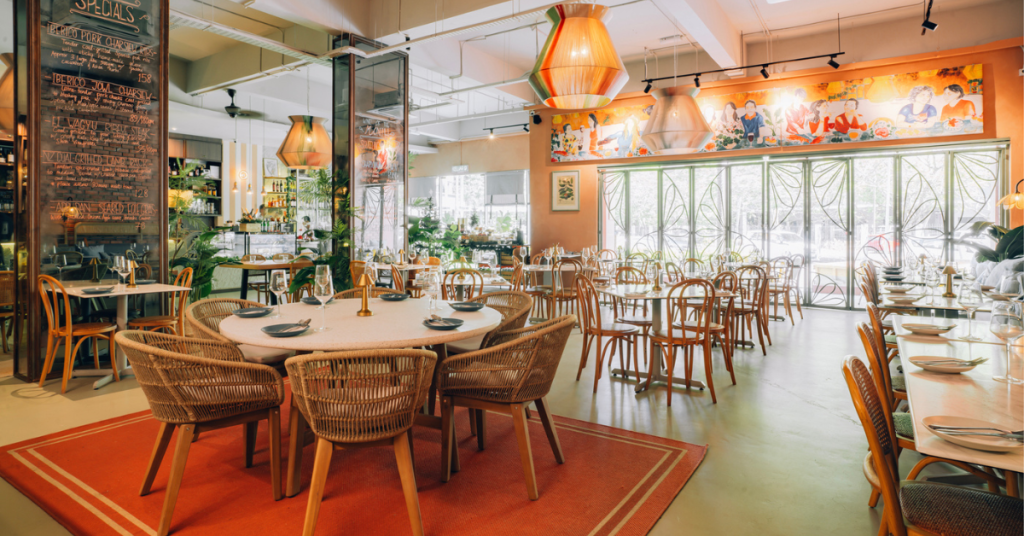
“Forget about it, you won’t find that balance,” she said when asked about how she balances her roles. “Literally impossible to find a balance between all the roles I play at work or even at home.”
While there are days she feels incapacitated by guilt over her outlets, Linn has learnt that having a good support system such as diligent department heads and even long-time loyal customers sometimes really helps.
“I think it starts with accepting you can’t be everywhere all at once and understand that though you can control most of the perimeters through good management structure, it does take some time and luck to put the right team of people in place to bring brands to life,” Linn shared.
Becoming a local stalwart
Over the years, Linn and her husband have managed to really establish their F&B brands as staples in the scene. Linn does consider themselves to be pioneers in town, having sustained Balin Roof Garden Bar & Bistro for around 16 years, while San Da Gen Kopitiam is in its ninth year.
However, challenges are still abound. For one, there’s a newly opened franchised modern Nanyang-style kopitiam right opposite of San Da Gen now.
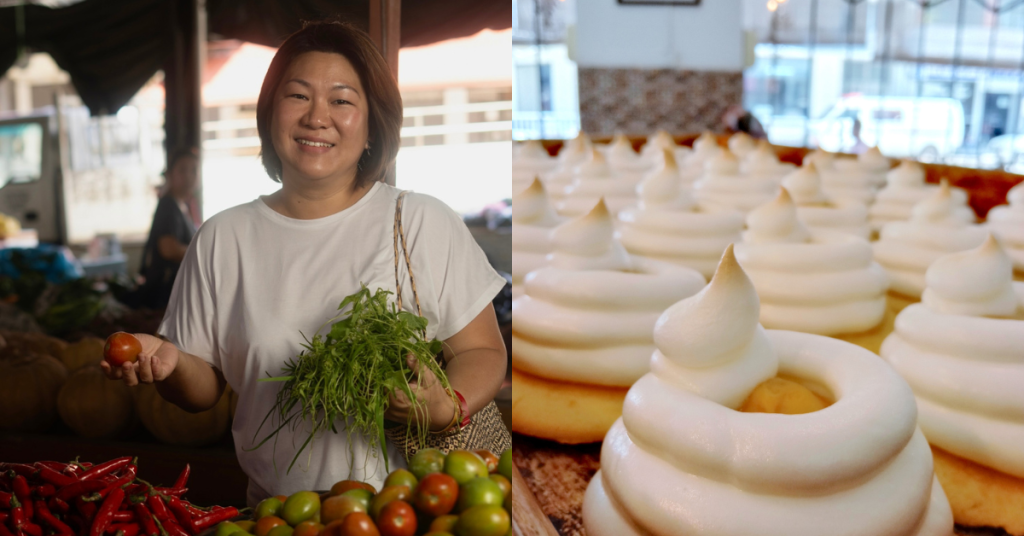
“Naturally the team is extremely nervous about the threats ahead, but I am quietly confident in our product,” Linn said. “Maybe it’s not such a bad thing that they are bringing the crowds back into town too.”
This year, the company plans to implement some big changes, such as sourcing ingredients locally and operational shifts. She’s even toying with the idea of starting a small farm to grow some typically imported items.
“KL, JB, and SG all have a special place in my heart, I still go there to look for inspiration,” Linn shared. “But Sabah and its untapped potential is what really excites me as an entrepreneur. 16 years later, I feel like it’s only the beginning for us all as a team.”
“San Da Gen Kopitiam in particular has seen some high highs and low lows, but let’s just say for now it is enough to keep us three spoons fully well fed and happy to keep going.”
- Learn more about San Da Gen Kopitiam here.
- Read other articles we’ve written about F&B businesses here.
Featured Image Credit: San Da Gen Kopitiam



